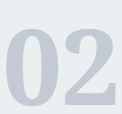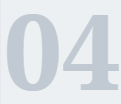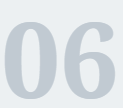JEE
The Joint Entrance Examination (JEE) is the most prestigious and competitive entrance test for admission to undergraduate engineering programs in India. It is the gateway to top engineering institutions like the Indian Institutes of Technology (IITs), National Institutes of Technology (NITs), Indian Institutes of Information Technology (IIITs), and other premier institutions across the country.
Key Features of JEE Exam
- National Level Exam: JEE is a nationwide exam held to select candidates for admission to B.Tech/B.E. courses.
- Two Phases: JEE is conducted in two parts: JEE Main and JEE Advanced. JEE Main is the first stage, while JEE Advanced is for admission to the IITs.
- Computer-Based Test (CBT): The exam is entirely online with multiple-choice questions (MCQs) and numerical-based questions.
Joint Entrance Examination
Eligibility Criteria for JEE
Age Limit
For JEE Main: The candidate must be born on or after October 1, 1999 (for General category) and October 1, 1994 (for SC/ST/PwD). For JEE Advanced: Candidates must meet the age limit as per the respective IIT's rules.
Minimum Marks
Candidates must secure at least 75% aggregate in Class 12 (65% for SC/ST/PwD). For candidates appearing in Class 12 exams, they are eligible to appear for JEE (Main).
Educational Qualification
Candidates must have passed the Class 12 or equivalent examination with at least 5 subjects, including Physics, Chemistry, and Mathematics.
Other Criteria
Both Indian nationals and foreign nationals are eligible to apply for JEE.
JEE Mains Exam Structure
Exam Duration
3 hours
Mode of Examination
Computer-Based Test (CBT)
Total Marks
300 (Each paper is of 300 marks)
Marking Scheme
For MCQs: +4 for correct answer, -1 for incorrect answer.
For Numerical Type Questions: +5 for correct answers, No Negative Marking for wrong answers.
Number of Attempts
Candidates can appear for JEE Main for 3 consecutive years.
Marking Scheme
Physics: 30 questions, with 4 marks for MCQs and 5 marks for numerical questions, totaling 100 marks.
Chemistry: 30 questions, with 4 marks for MCQs and 5 marks for numerical questions, totaling 100 marks.
Mathematics: 30 questions, with 4 marks for MCQs and 5 marks for numerical questions, totaling 100 marks.
JEE Advance Exam Structure
Exam Duration
6 hours (2 papers of 3 hours each)
Mode of Examination
Computer-Based Test (CBT)
Total Marks
Varies each year (around 360 marks)
Marking Scheme
Paper 1 & Paper 2: Each question can have different marking schemes depending on the type (MCQ, Integer Type, Match the Following, etc.)
Number of Attempts
Candidates can appear for JEE Advanced two times in consecutive years.
Marking Scheme
Physics: 20-24 questions in Paper 1, 20-24 questions in Paper 2, total marks vary.
Chemistry: 20-24 questions in Paper 1, 20-24 questions in Paper 2, total marks vary.
Mathematics: 20-24 questions in Paper 1, 20-24 questions in Paper 2, total marks vary.
JEE Syllabus
The JEE syllabus is based on the NCERT curriculum for classes 11 and 12.
01.
Physics
- Class 11 Topics:
- Mechanics: Laws of motion, work, energy, and power
- Thermodynamics
- Properties of Matter
- Waves and Sound
- Class 12 Topics:
- Electrostatics
- Current Electricity
- Magnetic Effects of Current
- Optics
- Modern Physics
02.
Chemistry
- Class 11 Topics:
- Structure of Atom, Chemical Bonding
- States of Matter, Thermodynamics
- Organic Chemistry: Hydrocarbons
- Physical and Chemical Equilibria
- Class 12 Topics:
- Electrochemistry
- Surface Chemistry
- Organic Chemistry: Biomolecules, Polymers
- Solid State Chemistry
03.
Biology
- Class 11 Topics:
- Algebra: Polynomials, Linear Equations
- Calculus: Limits and Derivatives
- Geometry: Coordinate Geometry
- Trigonometry
- Class 12 Topics:
- Integration and Differentiation
- Matrices and Determinants
- Probability
- Vector Algebra and 3D Geometry
How to Apply for JEE
It is the gateway to top engineering institutions like the Indian Institutes of Technology (IITs), National Institutes of Technology (NITs), Indian Institutes of Information Technology (IIITs),

Registration
Visit the official JEE website (https://jeemain.nta.nic.in/). Create a login ID with your basic details (name, contact details, etc.).

Filling the Application Form:
Log in with the generated credentials and complete the application form with personal, academic, and communication details. Then, upload scanned documents.

Choosing Examination Center
Select the exam center preferences and the medium of examination (English, Hindi, etc.).

Fee Payment
The exam fee can be paid online via Debit/Credit cards, Net Banking, or e-wallets. General: ₹650 (JEE Main), ₹1400 (JEE Advanced) SC/ST/PwD: ₹325 (JEE Main), ₹700 (JEE Advanced) Female Candidates: ₹325 (JEE Main), ₹700 (JEE Advanced)

Submit Your Application
Review your application form for accuracy and click on "Submit."

Download Confirmation
Download the confirmation page and take a printout for reference.
